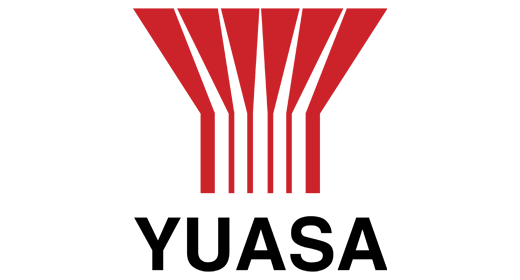Securing Transactions: The Critical Role of UPS Systems in Finance and Banking
In the fast-paced world of finance and banking, unremitting power is more than just a priority - it's a fundamental necessity. The dynamic landscape of the financial industry in the United Kingdom merges crucial elements, such as data and transaction security, regulatory compliance, disaster recovery, and so much more. Seamless operations can only be guaranteed with the undisturbed functioning of all systems, underscoring the critical role of Uninterruptible Power Supply (UPS) systems. It's in the core of this digitised world that our attention is directed, as we delve into the realm where power meets finance and banking, exploring the indispensable essence of UPS systems.
In this intriguing exploration, we'll also look at the broader UK banking and finance landscape, focusing on employment, key bank players, and trends like open banking, and the balance between contactless and cash payments. We'll shed light on the impact of pivotal concepts like financial inclusion, privacy, security, and the participation of women in investing. Our journey wouldn't be complete without considering sustainability - how the finance sector is not just acknowledging but also actively mitigating climate change impacts.
Join us as we navigate through this complex yet fascinating journey to understand the integral role of uninterruptible power in reshaping the financial landscape of the UK. In the process, we'll discover how a balanced intertwining between technology, policy, and societal trends can create a resilient, inclusive, and sustainable finance system.

Importance of Uninterruptible Power Supply Systems in Finance
In an era where finance and technology interlace seamlessly, the importance of a reliable support mechanism cannot be overstated. Among these supportive structures, Uninterruptible Power Supply (UPS) systems occupy a critical role. UPS systems provide an immediate source of backup power for key financial operations and data during power failures, ensuring smooth functioning and secure transactions. Let's dive into the reasons why any financial body must consider the UPS systems as a non-negotiable element of their infrastructure.
Securing Data and Transactions
In a financial environment, every single transaction carries significant importance. A sudden power outage during an irreversible trade could lead to a critical loss for all parties involved. UPS systems assure continuity of operations, reducing the chance of transactional errors or discrepancies that could result from unexpected power interruptions. Through these systems, we can also ensure a safe shutdown of systems if needed, thereby preventing any risky data loss or corruption.
Disaster Recovery
Disasters can strike without warning, causing substantial damage to operations and data. A well-implemented Uninterruptible Power Supply system provides a safety net for such instances. It minimises downtime, allowing enough time to put disaster recovery protocols into effect. With efficiently working UPS systems in place, we can confidently continue operating our critical applications and protect our data even in the face of disaster.
Regulatory Compliance
Complying with necessary regulatory standards is paramount in finance. Failing to do so can result in significant fines and damage to reputation. Various regulations mandate obligatory efforts towards data security and persistent availability. Here again, UPS systems have a key role to play. They ensure that we meet these rules by providing backup power support and ensuring no interruptions to data access or transactional procedures.
Mitigating Downtime
In any financial analysis, time equates to money. Any moment of downtime could mean a substantial economic loss. Utilising reliable UPS systems curbs this downtime considerably. Moreover, the importance of these systems has amplified exponentially with the increasing volume of financial transactions handled by FinTech and tech companies. By integrating robust UPS systems, we can maintain seamless and smooth operations, driving our company's growth and success.
In essence, an Uninterruptible Power Supply system is a silent guardian that works behind the scenes, ensuring relentless service, preventing data loss, aiding in smooth operations, and helping us remain compliant with statutory norms. So, let's acknowledge and appreciate the role of UPS systems as an unsung hero in the world of finance. Their importance is truly undeniable.
On-site UPS Systems for Smaller Banks and Branches of Larger Banks
Whether it's a small private bank or a branch of a larger financial institution, the need for reliable on-site Uninterruptible Power Supply (UPS) systems cannot be overstated. These systems are critical for ensuring:
- Business Continuity and Financial Transactions: On-site UPS systems ensure that financial transactions continue seamlessly during power outages, a necessity for both small banks and individual branches of larger institutions where even a brief interruption can cause significant disruptions.
- Security Systems: UPS systems provide uninterrupted power to essential security features, such as surveillance cameras, alarm systems, and secure access controls, ensuring these critical systems remain operational even during power disruptions.
- Regulatory Compliance: Compliance with regulatory standards is non-negotiable in finance. On-site UPS systems help meet these requirements by ensuring continuous access to data and transactional records, which are vital for all banking operations, large or small.
- Customer Service and Trust: Maintaining uninterrupted banking services fosters customer trust and satisfaction. Whether it's a local branch of a major bank or a small independent institution, ensuring continuous service is key to maintaining customer loyalty.
- Protection of IT Infrastructure: Both small banks and branch sites of larger institutions depend on IT infrastructure for day-to-day operations. On-site UPS systems protect this infrastructure from power surges and outages, preventing data loss and hardware damage.
- Dependence on Technology: With the banking sector's increasing reliance on technology, an uninterrupted power supply is essential to avoid costly disruptions at any level, be it a small bank or a single branch of a larger network.
- Risk Management: A well-implemented UPS system is crucial for risk management, reducing the potential for financial losses due to power-related incidents, which is critical for maintaining operational efficiency across the entire banking network.
Uniti Power's Symphony Range: The Perfect UPS Solution for Banks
For smaller banks and branches of larger financial institutions, the Uniti Power Symphony range of online double conversion UPS systems provides an ideal solution. These single-phase systems, including models like the Symphony 1500VA, Symphony 3000VA, Symphony 6kVA, and Symphony 10kVA, are specifically engineered to support the unique demands of banking environments.
These UPS systems offer:
- High Efficiency: With double conversion technology, the Symphony range ensures a consistent and clean power supply, critical for protecting sensitive banking equipment from power fluctuations.
- Scalability: These systems cater to varying power needs, making them suitable for small banks and scalable for use in larger branch networks.
- Reliability: Known for their robust performance, Uniti Power's Symphony UPS systems ensure that banking operations remain uninterrupted, even during prolonged outages, making them a reliable choice for banks of all sizes.
Implementing Uniti Power Symphony UPS systems across your banking infrastructure guarantees that your critical operations are protected, regardless of the size or location of the bank or branch.
UK Banking and Finance Landscape
The UK Banking and Finance industry forms a pivotal sector responsible for the smooth functioning of the economy, providing essential services to both individuals and businesses alike. Time for a deep-dive into what this dynamic industry looks like, its leading players, employment, and various ways of transacting!
Key Bank Players
Firstly, meet the driving forces behind the UK's banking landscape. Among the biggest players, HSBC stands tall. As one of the largest global banks, HSBC has assets exceeding a whopping £2.3 trillion as of June 2023. Just to give you a picture of the market share concentration, while there are several banks in the running, the industry is described as moderately focused - some leading the race, while others persistently playing catch-up.
Employment
Besides being indispensable for economic functioning, the finance industry is also a significant source of employment. Just in the first quarter of 2022, this sector cushioned a staggering 1.08 million jobs, accounting for a notable 3.0% of all jobs in the UK. The financial sector continues to be a beacon of opportunity for job seekers throughout Britain.
Contactless Payments
Turning our attention to payments, contactless transactions have taken the stage. Marking a massive jump, the number of contactless payments in the UK sky-rocketed, reaching 13.1 billion in 2021 - reflecting an impressive 36% surge from the previous year. More than ever, consumers are embracing the convenience and safety offered by contactless options.
Cash Payments
However, amid the digital payment boom, cash remains significant and relevant. The volume of cash payments in the UK rose from the previous year, bumping up to 6.4 billion in 2022. This subtle yet meaningful increase underscores that, despite the rise in digital, cash maintains its foothold, mainly due to factors like familiarity, accessibility, and anonymous transactions.
Open Banking
Lastly, we cannot wrap our review without touching upon the ground-breaking advances brought about by Open Banking. Steadily winning over UK consumers and Small and Medium Enterprises (SMEs), Open Banking's usage notably expanded, with 7 million availing its services during January 2023. Offering benefits like easy account management, greater financial control, and seamless transactions, Open Banking is certainly shaping the future of finance in the UK.
In a nutshell, the UK's Banking and Finance industry, with its diverse actors and innovative practices, plays a crucial role in the nation's economic robustness. As digital solutions evolve and customer behaviours change, it remains a fascinating space to watch and engage with for years to come.
Financial Inclusion, Privacy and Security
Financial Inclusion
Starting this intriguing journey through the world of finance, let's discuss the issue of financial inclusion. It's a term you've probably heard, but how many of us understand what it means? Financial inclusion is essentially about making financial services accessible to everyone, regardless of their income levels or social status.
With 28% of UK citizens feeling excluded from financial services, an increase from 20% previously, it's evident that financial inclusion is not just a buzzword. It's a real issue impacting many, creating a financial divide that directly affects people's quality of life.
So, how can we bridge this divide? A blended approach to policy changes and technological innovation is essential. By focusing on providing products that meet the diverse needs of the population and using technology to reach those who are currently underserved, we can start to make our financial ecosystem more inclusive.
Privacy
Swinging our focus from inclusion to privacy, let's now explore why privacy is a cornerstone of the financial world. With the advent of the digital age, protecting customer privacy has become more complex. Every day, we entrust our financial institutions with sensitive data, banking on their ability to keep it secure – and the commitment to privacy is a part of this trust.
Systems like secure login and three-factor authentication are critical measures to protect customer data and ensure privacy. By employing these systems, institutions can assure their customers that they are not only providing financial services but also respecting and protecting their clients' privacy.
Security
From privacy, we naturally segue into the world of security. In the finance industry, security and privacy often go hand in hand. Let's clarify – while privacy is about control over your data, security refers to the measures taken to protect this data.
It can't be emphasised enough how paramount security is in the financial sector. With the significant surge in digital transactions, enforcing robust security practices is more essential than ever. From the use of encrypted data transmission to the institution of secure login procedures, the finance industry is continuously striving to bolster its defences and secure customers' trust.
Women's Investment
Finally, let's touch upon a rather inspiring subject – the rise of women's investment. Not only is it empowering, but investment among women is also seen as a superpower. An increasing number of women are taking hold of their financial futures, understanding the importance of investment as a tool for economic emancipation.
In this changing landscape, efforts to encourage women investors are crucial. By providing the necessary resources and tools, we can help women embrace their roles as investors. A richer gender parity in investment not only signifies progress but also contributes to a more diverse and robust financial environment.
By ensuring financial inclusion, safeguarding privacy and security, and empowering women investors, we can create a financial world that is more inclusive, secure, and dynamic.
Climate Change Mitigation and Sustainability
As we look toward the future, the role of banks in climate change mitigation and sustainability efforts is more critical than ever before. They wield an incredible amount of influence, and it is their responsibility to push for a more sustainable future. By directing investments towards green technologies and sustainable industries, banks can significantly contribute to combating climate change.
The dire consequences of climate change are already visible across the globe. Rising sea levels, more frequent and severe weather events, and disruption of ecosystems are just a snippet of the great number of troubling developments that we're witnessing. That's why urgent action must be undertaken for the planet's sake, and the financial sector is poised to lead the way.
Let's delve deeper into the unique ways in which banks can contribute to climate change mitigation:
- Promoting Green Investments: Banks have the power to shape the economy's direction. By prioritising investments in green initiatives, they can stimulate the growth of industries focused on combating climate change. This could include sectors like renewable energy, sustainable agriculture, and green construction.
- Sustainable Lending Practices: By implementing sustainable lending practices, banks can indirectly influence companies to adopt more environmentally friendly modes of operation. For instance, offering fewer loans to industries known for high pollution levels can incentivize them to minimise their carbon footprint.
- Environmental Risk Assessment: An essential function of banks is to assess risk. By adding environmental risk into their assessments, they can gear their strategies towards mitigating climate change. Higher risks could be associated with companies that have a significant environmental impact, thus encouraging more sustainable practices.
As a centre of influence, it is incumbent upon banks to take the lead in the efforts to combat climate change. Their proactive involvement will not only protect our planet but also ensure a more sustainable and prosperous future for all. By deploying their resources and leveraging their influence, banks indeed have a unique opportunity to contribute significantly to climate change mitigation and sustainability efforts. A sustainable future is a shared responsibility, and it's high time we all recognise banks' crucial role in this common goal.
Let's drive home the importance of stepping up to the challenges of climate change and creating a sustainable future for all. An era of green banking isn't just a possibility, it's a necessity. It's not merely about securing our future; it's about shaping it.
Conclusion
In a world that's growing digital by the day, while also facing climatic and energy challenges, the importance of reliable power protection cannot be overstated. Especially within the demanding environment of finance and banking in the UK, the role of Uninterruptible Power Supply (UPS) systems is crucial. Trusted UPS solutions, like the ones we offer at Secure Power, can make a world of difference for your business by ensuring the preservation, privacy, and continuity of your transactions and data.
From securing sensitive data and transactions to aiding in disaster recovery, maintaining regulatory compliance, and mitigating downtime, a robust UPS system proves essential. This is true not only for smaller and private banks but also for branches of larger financial institutions. On-site UPS systems are vital in these settings to ensure business continuity, protect IT infrastructure, and maintain uninterrupted service delivery, no matter the size or location of the bank or branch.
For these institutions, Uniti Power's Symphony range of online double conversion UPS systems offers the perfect solution. These systems provide high efficiency, scalability, and reliability, making them ideal for safeguarding banking operations against power disruptions.
At Secure Power, we're committed to providing first-in-class UPS systems tailor-made for your specific requirements. We're here to help safeguard your finance and banking operations, thereby fostering continuous and seamless service delivery. Because, when your power supply is uninterrupted, so are your services, your growth, and your success.
As the UK banking and finance sector evolves towards a more digitised and inclusive landscape, the need for reliable power supply solutions grows ever more critical. Let us assist you in ensuring your operations remain uninterrupted, even in the face of unforeseen power outages. By leveraging our expertise and technical knowledge, we help you ensure that no power disruption jeopardises your business operation, reputation, or customer trust.
In conclusion, as the financial landscape of the UK makes strides towards becoming more inclusive, sustainable, and digital, the reliability of transactions secures the trust of consumers in this ever-evolving marketplace. UPS systems are no longer just a good-to-have but an essential part of your infrastructure, allowing you to guarantee secure and continuous financial services. Let Secure Power be your partner in this journey, ensuring the uninterrupted power that your business needs to thrive.
Frequently Asked Questions
-
Why are uninterruptible power supply systems important for securing transactions in finance and banking?
Uninterruptible power supply systems are crucial for securing transactions in finance and banking because they provide backup power during power outages or fluctuations, ensuring uninterrupted operation of critical systems and preventing data loss or corruption.
-
What are the key features to consider when choosing an uninterruptible power supply system for finance and banking institutions?
When choosing an uninterruptible power supply system for finance and banking institutions, key features to consider include power capacity, scalability, redundancy, battery runtime, remote monitoring capabilities, and compliance with industry regulations.
-
How do uninterruptible power supply systems protect against power-related risks?
Uninterruptible power supply systems protect against power-related risks by instantly providing backup power in the event of a power outage or voltage fluctuation, preventing transactional disruptions, data loss, hardware damage, and potential financial losses.
-
Are uninterruptible power supply systems expensive to implement in finance and banking environments?
The cost of implementing uninterruptible power supply systems in finance and banking environments varies based on factors such as power capacity, redundancy requirements, and scalability. While there is an initial investment, the cost is outweighed by the potential financial losses that can occur during power interruptions.
-
Can uninterruptible power supply systems be integrated with existing infrastructure in finance and banking institutions, including smaller banks?
Yes, uninterruptible power supply systems like the Uniti Power Symphony range can be seamlessly integrated with existing infrastructure in finance and banking institutions. These systems are designed to work in conjunction with backup generators and other power management systems, providing a comprehensive power protection solution that scales to meet the needs of smaller banks as well.














